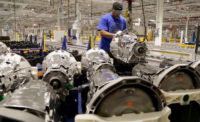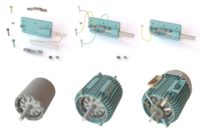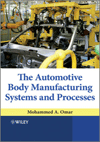KARLSRUHE, Germany—A group of engineers at the Karlsruhe Institute of Technology (KIT), are using artificial intelligence (AI) technology to develop an agile production system that can autonomously adapt to changing product specifications. The AgiProbot project uses robots equipped with multi-sensor technology.
“Industrial production has to supply increasingly customized products and be highly efficient at the same time,” says Gisela Lanza, an engineering professor at KIT working on the project. “Conventional solutions for optimizing classical assembly line production are reaching their limits, because all strategies assume the different production scenarios to be known in advance.
“This is not sufficient to cope with increasing volatility,” warns Lanza. “In the future, we will not be able to think about everything in advance.”
Lanza and her colleagues are developing a flexible production system that integrates all relevant subsystems, learns autonomously, responds dynamically to requirements not known in advance and determines the best possible solution. Multi-modal sensors simultaneously measure supplementary environmental data, such as motion and contact.
“They are implemented in plant technology, such as industrial robots, and collect production-relevant data,” explains Lanza. “Based on this data, driverless transportation systems supply the modular production stations with the necessary goods. Collaborative, mobile robots use the data to adapt their action strategies.”
Using AI and already existing technical knowledge, the manufacturing system applies special learning algorithms. It also learns from the movements and glances of human workers collaborating with industrial robots.
The goal of the AgiProbot project is to develop a prototype factory to remanufacture electric motors used in automotive applications. “In an agile and automated process, the motors are to be disassembled and prepared for reuse,” says Lanza.





